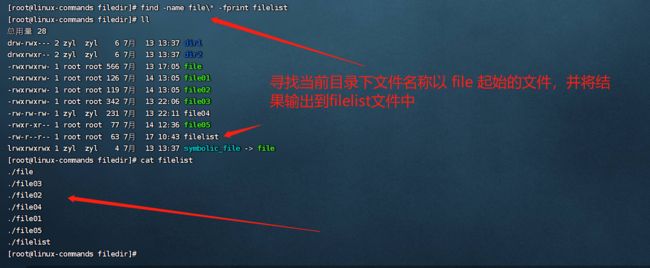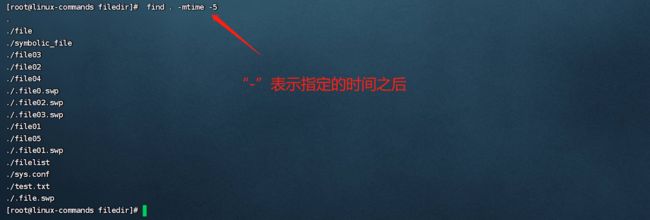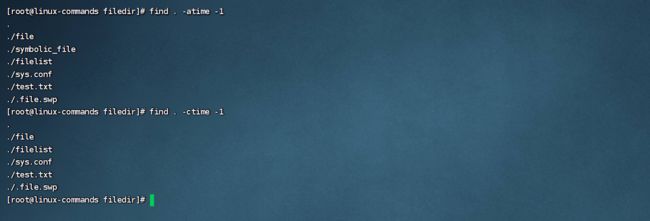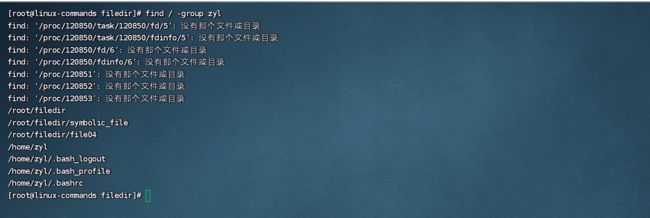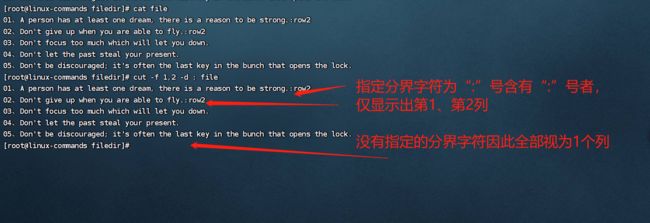- cx_Oracle.DatabaseError: Error while trying to retrieve text for error ORA-01804
智海观潮
Oracleoraclepython
问题:使用cx_Oracle连接oracle时报错cx_Oracle.DatabaseError:ErrorwhiletryingtoretrievetextforerrorORA-01804samplecode:importcx_Oracleconn=cx_Oracle.connect(user,pwd,self.ois_tns)解决:排查服务器执行该代码的Linux用户下的.bash_prof
- vue2 面试题及详细答案150道(121 - 130)
《前后端面试题》专栏集合了前后端各个知识模块的面试题,包括html,javascript,css,vue,react,java,Openlayers,leaflet,cesium,mapboxGL,threejs,nodejs,mangoDB,MySQL,Linux…。前后端面试题-专栏总目录文章目录一、本文面试题目录121.Vue2中如何实现组件的动态样式绑定?122.Vue2中如何处理跨域请求
- Java 实习模拟面试之信也科技:IO、多线程、集合、MySQL、Redis、HTTP、Linux 常见面试题解析
在本次模拟面试中,我们将模拟一场面向Java实习生岗位的面试,重点围绕Java基础(IO、多线程、集合)、MySQL、Redis、MQ、HTTP协议以及Linux基础等核心知识点。通过模拟面试官提问和候选人的回答方式,帮助你更好地准备技术面试。一、Java基础(IO、多线程、集合)面试官提问:请谈谈你对JavaIO的理解,以及NIO和BIO的区别?候选人回答:JavaIO是Java提供的一套用于处
- 项目快速上手指南:8 大核心切入点
weixin_43391139
技术工程化架构设计模式学习方法
一、文档体系速览需求层产品需求文档(PRD):明确业务目标、用户故事和功能边界非功能需求:性能指标、安全要求、合规标准设计层架构图:系统分层、技术栈选型、核心组件交互ER图与数据字典:表结构关系、字段约束、业务术语定义API文档:接口规范、请求示例、错误码说明操作层用户手册:功能导航、操作流程、常见问题管理后台指南:权限配置、运维操作、数据报表二、代码库解构路径全局视野目录范式:MVC/DDD分层
- python3 pyv8 linux,Python3.5安装PyV8
左瑶
python3pyv8linux
Python3.5安装PyV8时,报错,PyV8版本:PyV8-0.5。错误如下:C:UsersAdministratorAppDataLocalProgramsPythonPython35Libsite-packages>pipinstallPyV8CollectingPyV8Usingcachedhttps://files.pythonhosted.or...683f439e7bdd67f95
- 掌握未来云原生:Kamaji Kubernetes 控制平面管理器
白羿锟
掌握未来云原生:KamajiKubernetes控制平面管理器项目简介在Kubernetes的世界里,我们迎来了Kamaji——一款创新的Kubernetes控制平面管理器。这个项目基于托管控制平面的理念,将Kubernetes控制面组件运行在Pod中,而不是独立的物理或虚拟机上。通过这种方式,Kamaji使大规模集群管理和扩展变得更为高效且降低了运维负担。Kamaji就像一支全天候工作的Site
- Docker 发布自己的镜像
吟风者
Dockerhub注册用户到官网注册账号:https://hub.docker.com/注册账号后,登录Dockerhub,创建一个仓库,用来上传我们的镜像。15.png16.png(仓库名和镜像名需要和你本地要上传的镜像一致)在本地Linux登录docker:dockerlogin输入用户名密码进行登录:11.png登出操作:dockerlogout10.png给镜像打tag推送镜像的规范是:d
- PyQt5学习笔记,带例子源码
一、很程序员,都喜欢开发windows桌面应用系统,基于python3开发,效率高二、PyQt5开发的桌面应用系统是可以跨平台的,可以在Mac上、Window上、Linux桌面系统上运行,以下为学习笔记及总级三、源码下载登录后复制1、QDateTimeEdit日期输入框setCalendarPopup弹出日期选择框setDisplayFormat("yyyy-MM-ddHH:mm:ss")设置展示
- 运维老司机私藏的Docker命令清单,建议收藏!
飞乐鸟
干货docker
Docker常用命令无论是开发、测试还是运维,Docker已成为现代技术栈的标配。面对众多命令,整理了最实用的Docker命令清单,覆盖90%日常使用场景,助你快速成为容器化高手!镜像管理镜像构建//-t指定镜像名称和标签、构建上下文环境(包含Dockerfile的目录)dockerbuild-tmyapp:1.0. //指定Dockerfile路径dockerbuild-f./dockerfil
- Docker集群部署 Apache DolphinScheduler 3.x
ジ来将可留姓名
dockerapache容器
Docker集群部署ApacheDolphinScheduler3.x。前期准备首先,确保你的机器上已经安装了Docker和DockerCompose。如果还没有安装,请参考以下链接进行安装:Docker安装指南DockerCompose安装指南确认Docker和DockerCompose版本打开终端(Linux/MacOS)或命令提示符(Windows),输入以下命令来检查是否正确安装了Dock
- Git CLI高危任意文件写入漏洞(CVE-2025-48384)PoC已公开
FreeBuf-
git
GitCLI(命令行界面)中存在一个高危漏洞,攻击者可利用该漏洞在Linux和macOS系统上实现任意文件写入。目前该漏洞的概念验证(PoC)利用代码已公开。该漏洞编号为CVE-2025-48384,CVSS严重性评分为8.1分(满分10分)。当用户执行gitclone--recursive命令克隆恶意仓库时,攻击者可借此实现远程代码执行。**关键要点**1.CVE-2025-48384(CVSS
- python基础语法9,用os库实现系统操作并用sys库实现文件操作(简单易上手的python语法教学)
AI 嗯啦
python开发语言
一、os库os.system()是Pythonos库中用于执行操作系统命令的重要方法,它允许在Python程序中直接调用系统shell命令(如Linux的bash命令或Windows的cmd命令)。基本语法importosos.system(command)command:要执行的系统命令字符串(与在终端/命令提示符中输入的命令格式一致)返回值:命令执行的退出状态码(0表示成功,非0表示执行出错)
- 2025年华为认证之HCIE-云计算方向的报考流程
一、先搞明白:HCIE-云计算认证到底是啥?HCIE-云计算(华为认证ICT专家-云计算)是华为体系里云计算领域的顶级认证,说白了,就是证明你有能力搞定大型企业的云平台设计、部署和运维。现在政企、金融这些行业上云需求猛增,招人的时候,这证书经常是“加分项”甚至“硬门槛”。但这证不好拿,得闯两关:笔试和实验考试。从报名到拿证,流程说复杂也复杂,说简单也简单,关键是每个环节都得踩对节奏,不然容易走弯路
- Py-spy:优秀的 Python 程序性能监控、分析器
py-spy是用于Python程序的性能监控、分析器。它使你可以直观地看到Python程序花费的时间,而无需重新启动程序或以任何方式修改代码。py-spy的开销非常低:为了最大化提高速度,它是用Rust编写的,并且与配置的Python程序不在同一进程中运行。这意味着py-spy可以安全地用于生产环境的Python程序。py-spy可在Linux,OSX,Windows和FreeBSD上运行,并支持
- sbatch: error: Batch script contains DOS line breaks (\r\n)
爱听许嵩歌
编程debug问题batchmatlabslurm
问题:在使用超算时,提交脚本出现batch:error:BatchscriptcontainsDOSlinebreaks(\r\n)sbatch:error:insteadofexpectedUNIXlinebreaks(\n)原因:dos下的换行和Unix是不一样的:windows中\r\n表示换行,linux等使用\n换行。差异:Windows系统下文本文件的换行符是:回车+换行CR/LF即\
- 探索Python性能优化的新里程:py-spy
施刚爽
探索Python性能优化的新里程:py-spy项目介绍py-spy是一个为Python程序设计的轻量级采样剖析器,它无需重启或修改你的代码就能让你看到程序运行时的时间分配情况。由于其采用Rust编写,因此在不影响目标程序运行的情况下,py-spy能安全地对生产环境中的Python代码进行剖析。该项目支持Linux、macOS、Windows和FreeBSD上的所有现代CPython解释器版本(从2
- SCP命令传输文件
惟余惟余
运维
SCP进行文件传输一、基本语法:二、具体用法1.从本地将文件传输到服务器2.从本地将文件夹传输到服务器3.将服务器上的文件传输到本地4.将服务器上的文件夹传输到本地一、基本语法:Linuxscp命令用于Linux之间复制文件和目录。scp概述:scp是securecopy的缩写,scp是linux系统下基于ssh登陆进行安全的远程文件拷贝命令。scp与rcp的区别:scp是加密的,rcp是不加密的
- 第七弹:C语言基础--标准IO编程详解
三玖诶
CC语言标准IO编程
目录文章目录知识点1文件的概述1文件的定义2Linux系统中的文件定义3Linux系统中文件的访问3.1文件缓冲区概述3.2文件缓冲区具体形式4磁盘文件分类4.1磁盘文件分类说明4.2文本文件和二进制文件的区别知识点2标准IO库1FILE文件指针1.1FILE指针的概述1.2FILE结构体数据类型的定义1.3FILE指针的管理1.4FILE指针的分配2文件的IO操作2.1打开文件流-fopen2.
- 【linux安装git+配置gitlab+推送】
hi+
gitlinuxgitlab
【安装】$sudoaptupdate$sudoaptinstallgit$git--version【配置】A:安装Git之后,您需要做的第一件事就是配置您的git用户名和电子邮件地址。Git将您的身份与您所做的每次提交相关联。要设置全局提交名称和电子邮件地址,请运行以下命令:zly@ubuntu:~$gitconfig--globaluser.name"git用户名"zly@ubuntu:~$gi
- Linux C语言中的IO--标准IO
ぃ未来可期
Cc语言linux
文章目录1.IO概述系统调用和库函数有什么区别?2.标准IO2.1缓冲区/缓存区行缓冲区刷新方法全缓冲区刷新方法2.2文件指针2.3标准IO常用函数fopen()fclose()perror()errnofgetc()fputc()feof()/ferror()判断返回值EOF类型ungetc()将字符放回输入流fgets()fputs()fprintf()/sprintf()/dprintf/s
- c语言标准io库,IO之标准C库buffer
抬杠小天才
c语言标准io库
在论述这个主题之前,先介绍一下标准C库和linux系统调用以及windowsAPI之间的关系。拿写文件来举个例子linux下写文件用write()windows下写文件用WriteFile()这说明不同操作系统实现同样的系统功能的接口应该是不一样的。造成这种现状是操作系统发展的历史原因造成的,无法在操作系统的层面统一系统函数接口。同样功能的程序在linux上写一套,windows上又得写另外一套,
- Linux--标准IO库
Ao_Richard
应用编程Linux算法
一、标准IO简介所谓标准I/O库则是标准C库中用于文件I/O操作(譬如读文件、写文件等)相关的一系列库函数的集合,通常标准I/O库函数相关的函数定义都在头文件中,所以我们需要在程序源码中包含头文件。标准I/O库函数是构建于文件I/O(open()、read()、write()、lseek()、close()等)这些系统调用之上的,譬如标准I/O库函数fopen()就利用系统调用open()来执行打
- k8s包管理器helm_K8S集群 Helm 包管理
weixin_39872893
k8s包管理器helm
Helm是一个Kubernetes的包管理工具,就像Linux下的包管理器,如yum/apt等,可以很方便的将之前打包好的yaml文件部署到kubernetes上。k8s之前部署要写很多的yaml文件,大型应用部署起来比较麻烦,于是helm就出现了。Helm有两个重要概念:helm:一个命令行客户端工具,主要用于Kubernetes应用chart的创建、打包、发布和管理。Chart:应用描述,一系
- centos linux lvm分区,linux CentOS/redhat 6.5 LVM分区使用详解
文韬菌
centoslinuxlvm分区
1,介绍LVM是逻辑盘卷管理(LogicalVolumeManager)的简称,它是Linux环境下对磁盘分区进行管理的一种机制,LVM是建立在硬盘和分区之上的一个逻辑层,来提高磁盘分LVM区管理的灵活性。前面谈到,LVM是在磁盘分区和文件系统之间添加的一个逻辑层,来为文件系统屏蔽下层磁盘分区布局,提供一个抽象的盘卷,在盘卷上建立文件系统。物理卷(physicalvolume)物理卷就是指硬盘分区
- linux /unix/centos/ubuntu/redhat命令详解
UNIX概述•UNIX历史•UNIX特点•UNIX原则UNIX历史•UNIX操作系统诞生于60年代末期的Bell实验室•美国电话电报公司(AT&T)在70年代中期开始发行UNIX的非商业许可证•从70年代末开始在市场上出现了不同的UNIX商品化版本UNIX特点•可靠性高•伸缩性强•开放性好•植根于网络•面向数据库使用UNIX基本原则•所有对象,包括硬件都是文件•配置数据以文本形式保存•由短小的单目
- Kubernetes 集群简介 部署搭建 及常用命令
GHY@CloudGuardian
Kuberneteskubernetes容器云原生运维linux
Kubernetes集群简介Kubernetes(简称K8s)是一个开源的容器编排平台,用于自动化容器化应用的部署、扩展和管理。它为容器提供了一个完整的管理框架,帮助开发者和运维团队在大规模环境中高效地部署和管理应用。Kubernetes集群是由多个组件组成的,主要包括控制平面和工作节点。集群的核心目的是确保容器化应用的高可用性、可扩展性、负载均衡、自动化部署等功能。Kubernetes集群的基本
- 【云原生】Helm来管理Kubernetes集群的详细使用方法与综合应用实战
景天科技苑
云原生K8S零基础到进阶实战云原生kubernetes容器Helmk8sk8s集群
✨✨欢迎大家来到景天科技苑✨✨养成好习惯,先赞后看哦~作者简介:景天科技苑《头衔》:大厂架构师,华为云开发者社区专家博主,阿里云开发者社区专家博主,CSDN全栈领域优质创作者,掘金优秀博主,51CTO博客专家等。《博客》:Python全栈,前后端开发,小程序开发,人工智能,js逆向,App逆向,网络系统安全,数据分析,Django,fastapi,flask等框架,云原生k8s,linux,she
- k8s学习 — (运维)第九章 Helm 包管理器
2401_83740189
2024年程序员学习运维linux面试
网上学习资料一大堆,但如果学到的知识不成体系,遇到问题时只是浅尝辄止,不再深入研究,那么很难做到真正的技术提升。需要这份系统化的资料的朋友,可以点击这里获取!一个人可以走的很快,但一群人才能走的更远!不论你是正从事IT行业的老鸟或是对IT行业感兴趣的新人,都欢迎加入我们的的圈子(技术交流、学习资源、职场吐槽、大厂内推、面试辅导),让我们一起学习成长!config包含了可以合并到打包的chart中的
- 详解Linux(Ubuntu/RedHat/CentOS)及国产服务器统一加域管理方案
本期内容将通过一个实际案例讲清楚数据中心服务器身份认证场景的痛点及宁盾身份域管在其中的作用和价值。很多行业,像金融、运营商,还有那些关系国计民生的服务单位,均会受到监管制度统一要求,对数据中心的服务器执行定期修改口令、统一身份认证和MFA多因素认证。另外,等保、密评同样要求对服务器运维进行安全管控。但一般数据中心服务器规模较大,存在各种管理乱象,如:1.各种Linux,如Ubuntu、Redhat
- K8S的Helm包管理器
程序员Rocky
运维DevOpsk8skubernetesdocker容器helmhelm安装包
一、背景官网:https://helm.sh/我们针对K8S环境中,部署对应的应用,无外乎就是编写一堆yaml资源清单文件.资源清单、依赖性少的时候,可以直接手动维护。但是,随着资源清单越来越复杂,越来越多,不同的环境切换不同的资源清单配置,如果还是手动维护,那将会是一场运维灾难。没有Helm之前的问题:1、手动管理YAML文件:需要手动编写和维护大量YAML文件,容易出错2、缺乏标准化:各团队有
- Nginx负载均衡
510888780
nginx应用服务器
Nginx负载均衡一些基础知识:
nginx 的 upstream目前支持 4 种方式的分配
1)、轮询(默认)
每个请求按时间顺序逐一分配到不同的后端服务器,如果后端服务器down掉,能自动剔除。
2)、weight
指定轮询几率,weight和访问比率成正比
- RedHat 6.4 安装 rabbitmq
bylijinnan
erlangrabbitmqredhat
在 linux 下安装软件就是折腾,首先是测试机不能上外网要找运维开通,开通后发现测试机的 yum 不能使用于是又要配置 yum 源,最后安装 rabbitmq 时也尝试了两种方法最后才安装成功
机器版本:
[root@redhat1 rabbitmq]# lsb_release
LSB Version: :base-4.0-amd64:base-4.0-noarch:core
- FilenameUtils工具类
eksliang
FilenameUtilscommon-io
转载请出自出处:http://eksliang.iteye.com/blog/2217081 一、概述
这是一个Java操作文件的常用库,是Apache对java的IO包的封装,这里面有两个非常核心的类FilenameUtils跟FileUtils,其中FilenameUtils是对文件名操作的封装;FileUtils是文件封装,开发中对文件的操作,几乎都可以在这个框架里面找到。 非常的好用。
- xml文件解析SAX
不懂事的小屁孩
xml
xml文件解析:xml文件解析有四种方式,
1.DOM生成和解析XML文档(SAX是基于事件流的解析)
2.SAX生成和解析XML文档(基于XML文档树结构的解析)
3.DOM4J生成和解析XML文档
4.JDOM生成和解析XML
本文章用第一种方法进行解析,使用android常用的DefaultHandler
import org.xml.sax.Attributes;
- 通过定时任务执行mysql的定期删除和新建分区,此处是按日分区
酷的飞上天空
mysql
使用python脚本作为命令脚本,linux的定时任务来每天定时执行
#!/usr/bin/python
# -*- coding: utf8 -*-
import pymysql
import datetime
import calendar
#要分区的表
table_name = 'my_table'
#连接数据库的信息
host,user,passwd,db =
- 如何搭建数据湖架构?听听专家的意见
蓝儿唯美
架构
Edo Interactive在几年前遇到一个大问题:公司使用交易数据来帮助零售商和餐馆进行个性化促销,但其数据仓库没有足够时间去处理所有的信用卡和借记卡交易数据
“我们要花费27小时来处理每日的数据量,”Edo主管基础设施和信息系统的高级副总裁Tim Garnto说道:“所以在2013年,我们放弃了现有的基于PostgreSQL的关系型数据库系统,使用了Hadoop集群作为公司的数
- spring学习——控制反转与依赖注入
a-john
spring
控制反转(Inversion of Control,英文缩写为IoC)是一个重要的面向对象编程的法则来削减计算机程序的耦合问题,也是轻量级的Spring框架的核心。 控制反转一般分为两种类型,依赖注入(Dependency Injection,简称DI)和依赖查找(Dependency Lookup)。依赖注入应用比较广泛。
- 用spool+unixshell生成文本文件的方法
aijuans
xshell
例如我们把scott.dept表生成文本文件的语句写成dept.sql,内容如下:
set pages 50000;
set lines 200;
set trims on;
set heading off;
spool /oracle_backup/log/test/dept.lst;
select deptno||','||dname||','||loc
- 1、基础--名词解析(OOA/OOD/OOP)
asia007
学习基础知识
OOA:Object-Oriented Analysis(面向对象分析方法)
是在一个系统的开发过程中进行了系统业务调查以后,按照面向对象的思想来分析问题。OOA与结构化分析有较大的区别。OOA所强调的是在系统调查资料的基础上,针对OO方法所需要的素材进行的归类分析和整理,而不是对管理业务现状和方法的分析。
OOA(面向对象的分析)模型由5个层次(主题层、对象类层、结构层、属性层和服务层)
- 浅谈java转成json编码格式技术
百合不是茶
json编码java转成json编码
json编码;是一个轻量级的数据存储和传输的语言
在java中需要引入json相关的包,引包方式在工程的lib下就可以了
JSON与JAVA数据的转换(JSON 即 JavaScript Object Natation,它是一种轻量级的数据交换格式,非
常适合于服务器与 JavaScript 之间的数据的交
- web.xml之Spring配置(基于Spring+Struts+Ibatis)
bijian1013
javaweb.xmlSSIspring配置
指定Spring配置文件位置
<context-param>
<param-name>contextConfigLocation</param-name>
<param-value>
/WEB-INF/spring-dao-bean.xml,/WEB-INF/spring-resources.xml,
/WEB-INF/
- Installing SonarQube(Fail to download libraries from server)
sunjing
InstallSonar
1. Download and unzip the SonarQube distribution
2. Starting the Web Server
The default port is "9000" and the context path is "/". These values can be changed in &l
- 【MongoDB学习笔记十一】Mongo副本集基本的增删查
bit1129
mongodb
一、创建复本集
假设mongod,mongo已经配置在系统路径变量上,启动三个命令行窗口,分别执行如下命令:
mongod --port 27017 --dbpath data1 --replSet rs0
mongod --port 27018 --dbpath data2 --replSet rs0
mongod --port 27019 -
- Anychart图表系列二之执行Flash和HTML5渲染
白糖_
Flash
今天介绍Anychart的Flash和HTML5渲染功能
HTML5
Anychart从6.0第一个版本起,已经逐渐开始支持各种图的HTML5渲染效果了,也就是说即使你没有安装Flash插件,只要浏览器支持HTML5,也能看到Anychart的图形(不过这些是需要做一些配置的)。
这里要提醒下大家,Anychart6.0版本对HTML5的支持还不算很成熟,目前还处于
- Laravel版本更新异常4.2.8-> 4.2.9 Declaration of ... CompilerEngine ... should be compa
bozch
laravel
昨天在为了把laravel升级到最新的版本,突然之间就出现了如下错误:
ErrorException thrown with message "Declaration of Illuminate\View\Engines\CompilerEngine::handleViewException() should be compatible with Illuminate\View\Eng
- 编程之美-NIM游戏分析-石头总数为奇数时如何保证先动手者必胜
bylijinnan
编程之美
import java.util.Arrays;
import java.util.Random;
public class Nim {
/**编程之美 NIM游戏分析
问题:
有N块石头和两个玩家A和B,玩家A先将石头随机分成若干堆,然后按照BABA...的顺序不断轮流取石头,
能将剩下的石头一次取光的玩家获胜,每次取石头时,每个玩家只能从若干堆石头中任选一堆,
- lunce创建索引及简单查询
chengxuyuancsdn
查询创建索引lunce
import java.io.File;
import java.io.IOException;
import org.apache.lucene.analysis.Analyzer;
import org.apache.lucene.analysis.standard.StandardAnalyzer;
import org.apache.lucene.document.Docume
- [IT与投资]坚持独立自主的研究核心技术
comsci
it
和别人合作开发某项产品....如果互相之间的技术水平不同,那么这种合作很难进行,一般都会成为强者控制弱者的方法和手段.....
所以弱者,在遇到技术难题的时候,最好不要一开始就去寻求强者的帮助,因为在我们这颗星球上,生物都有一种控制其
- flashback transaction闪回事务查询
daizj
oraclesql闪回事务
闪回事务查询有别于闪回查询的特点有以下3个:
(1)其正常工作不但需要利用撤销数据,还需要事先启用最小补充日志。
(2)返回的结果不是以前的“旧”数据,而是能够将当前数据修改为以前的样子的撤销SQL(Undo SQL)语句。
(3)集中地在名为flashback_transaction_query表上查询,而不是在各个表上通过“as of”或“vers
- Java I/O之FilenameFilter类列举出指定路径下某个扩展名的文件
游其是你
FilenameFilter
这是一个FilenameFilter类用法的例子,实现的列举出“c:\\folder“路径下所有以“.jpg”扩展名的文件。 1 2 3 4 5 6 7 8 9 10 11 12 13 14 15 16 17 18 19 20 21 22 23 24 25 26 27 28
- C语言学习五函数,函数的前置声明以及如何在软件开发中合理的设计函数来解决实际问题
dcj3sjt126com
c
# include <stdio.h>
int f(void) //括号中的void表示该函数不能接受数据,int表示返回的类型为int类型
{
return 10; //向主调函数返回10
}
void g(void) //函数名前面的void表示该函数没有返回值
{
//return 10; //error 与第8行行首的void相矛盾
}
in
- 今天在测试环境使用yum安装,遇到一个问题: Error: Cannot retrieve metalink for repository: epel. Pl
dcj3sjt126com
centos
今天在测试环境使用yum安装,遇到一个问题:
Error: Cannot retrieve metalink for repository: epel. Please verify its path and try again
处理很简单,修改文件“/etc/yum.repos.d/epel.repo”, 将baseurl的注释取消, mirrorlist注释掉。即可。
&n
- 单例模式
shuizhaosi888
单例模式
单例模式 懒汉式
public class RunMain {
/**
* 私有构造
*/
private RunMain() {
}
/**
* 内部类,用于占位,只有
*/
private static class SingletonRunMain {
priv
- Spring Security(09)——Filter
234390216
Spring Security
Filter
目录
1.1 Filter顺序
1.2 添加Filter到FilterChain
1.3 DelegatingFilterProxy
1.4 FilterChainProxy
1.5
- 公司项目NODEJS实践0.1
逐行分析JS源代码
mongodbnginxubuntunodejs
一、前言
前端如何独立用nodeJs实现一个简单的注册、登录功能,是不是只用nodejs+sql就可以了?其实是可以实现,但离实际应用还有距离,那要怎么做才是实际可用的。
网上有很多nod
- java.lang.Math
liuhaibo_ljf
javaMathlang
System.out.println(Math.PI);
System.out.println(Math.abs(1.2));
System.out.println(Math.abs(1.2));
System.out.println(Math.abs(1));
System.out.println(Math.abs(111111111));
System.out.println(Mat
- linux下时间同步
nonobaba
ntp
今天在linux下做hbase集群的时候,发现hmaster启动成功了,但是用hbase命令进入shell的时候报了一个错误 PleaseHoldException: Master is initializing,查看了日志,大致意思是说master和slave时间不同步,没办法,只好找一种手动同步一下,后来发现一共部署了10来台机器,手动同步偏差又比较大,所以还是从网上找现成的解决方
- ZooKeeper3.4.6的集群部署
roadrunners
zookeeper集群部署
ZooKeeper是Apache的一个开源项目,在分布式服务中应用比较广泛。它主要用来解决分布式应用中经常遇到的一些数据管理问题,如:统一命名服务、状态同步、集群管理、配置文件管理、同步锁、队列等。这里主要讲集群中ZooKeeper的部署。
1、准备工作
我们准备3台机器做ZooKeeper集群,分别在3台机器上创建ZooKeeper需要的目录。
数据存储目录
- Java高效读取大文件
tomcat_oracle
java
读取文件行的标准方式是在内存中读取,Guava 和Apache Commons IO都提供了如下所示快速读取文件行的方法: Files.readLines(new File(path), Charsets.UTF_8); FileUtils.readLines(new File(path)); 这种方法带来的问题是文件的所有行都被存放在内存中,当文件足够大时很快就会导致
- 微信支付api返回的xml转换为Map的方法
xu3508620
xmlmap微信api
举例如下:
<xml>
<return_code><![CDATA[SUCCESS]]></return_code>
<return_msg><![CDATA[OK]]></return_msg>
<appid><

